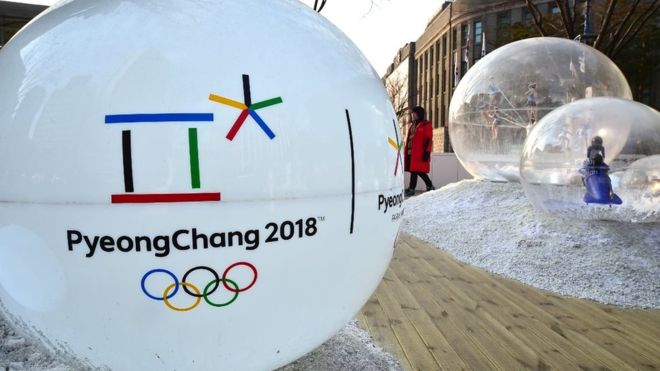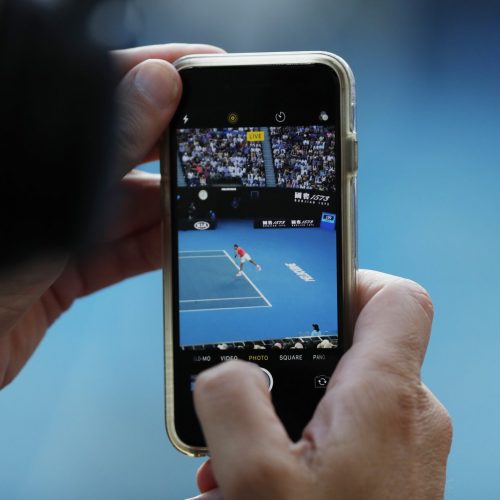BBC Sport’s Ben Gallop on the ‘seismic change’ of OTT
The following is a guest article from James Yellen, Senior Content Producer at LiveWire Sport…
“We went through a seismic change in the industry 25 years ago with satellite TV. We’re going through a second phase now with OTT…”
OTT – or “Over The Top” to give the delivery of digital video without the need for a traditional terrestrial, cable or satellite TV service its full name – is one of the big talking points of the sports media industry, with stories about the latest rights holder to move into the space breaking on an almost daily basis.
Prominent players from the sporting industry with their own OTT presence include the NFL, NBA, UFC, WWE, PGA, EFL and ATP – and to that list you can also add BBC Sport.
But for BBC Sport the use of OTT isn’t really a new thing at all. In fact they’ve had some 14 years’ experience, albeit with some huge changes along the way.
“We first used OTT in 2004 for the Olympic Games in Athens,” said Ben Gallop, BBC Sport’s Head of Digital and Radio, speaking at the Digital Sport OTT event in Manchester.
“When we started, we were essentially streaming what we were putting on TV onto the website and a lot has changed since then. At the 2008 Olympics in Beijing and definitely at London 2012, we streamed absolutely everything: London 2012 was a big turning point for us in particular.
“Our catchline was ‘Never Miss A Moment’ and we wanted to make sure, with it being a home Olympics, that everything was made accessible to everyone. We even held all footage of the Games until the end of the year. From an OTT point of view, that was a watershed moment for us.”
Since London 2012, things have changed a lot in the OTT world.
The emergence of platforms such as Grabyo, SnappyTV and Tellyo mean that rights holders now have the almost-instant capability to bring fans even closer to the action by clipping up and distributing bite-sized moments of live action as soon as it’s happened, helping to give the audience even more choice in the process.
Watching whole matches live, viewing highlights on demand or snacking on key moments – and all on a variety of devices and platforms. The way sports content is consumed has changed beyond all recognition in recent years with many broadcasters and rightsholders publishing content on third-party social channels because of their ability to reach massive audiences.
Like everyone else, the BBC has had to adapt with the times but when it comes to OTT it’s opted for a slightly different – but tried and tested – approach which helps retain more control of its content.
“We use our own platforms,” said Gallop. “The BBC Sport website’s own proprietary technology is the same technology that drives BBC iPlayer.
“We were the first to do that at scale and it works for us. It doesn’t often fall down, like other services.
“By doing it on our platform, we own the relationship with the audience and, as a public-service broadcaster, that’s so important to us.
“We’re not going to be doing it directly on Facebook or other third-party platforms, we want to do it on ours because we want the relationship directly with the audience.”
With the Winter Olympics starting on Thursday and the World Cup and the Commonwealth Games all coming up, 2018 is going to be a busy year for BBC Sport. But the Winter Olympics in PyeongChang also represents the start of a new era.
In 2015, the International Olympic Committee awarded all TV and multiplatform broadcast rights in Europe for the Olympic Games from 2018 to 2024 to Discovery and Eurosport, with a deal agreed in 2016 for the BBC to sub-license the action.
As a result, the Winter Olympics will see the BBC share output with Eurosport. But how will the partnership work in South Korea?
“Ultimately, we are partners,” said Gallop. “The way the rights market works now, often our rights are done in partnership.
“Once upon a time, the BBC had rights to most sports, including the Olympics, but now we don’t.
“Eurosport and Discovery now have all of the rights in terms of streaming every sport from the Games, but that will be behind a paywall. They are the paid broadcaster, we are the free-to-air broadcaster.
“The way the rights have been carved out, we are the primary broadcaster when it comes to posting on social, so in essence we get first cut and there’s a bit of a holdback for Eurosport.
“The reality is that we will have every major moment that you or I care about.
“We will tell you the story of the Olympics in pretty comprehensive form through those two streams.”
Let the Games begin.
About author
You might also like
Mallory Group Launches White Paper on the ‘New Normal’ for Sports Rights Holders
Sport is proving to be one of the high-profile business casualties of the Covid-19 pandemic. However, its slow and structured return will be a key factor in life entering the
The seven essentials for achieving successful sports branding
By Daniela McVicker When it comes to sports, great branding is a must. Your brand influences how people see your company or team. It helps you to forge connections with
Live Chat: A New Social Experience in Sports
Article written by John S. Kim, CEO and co-founder of global API company SendBird Social media rose to prominence throughout the world due to its potential for connection. Social channels provided the









